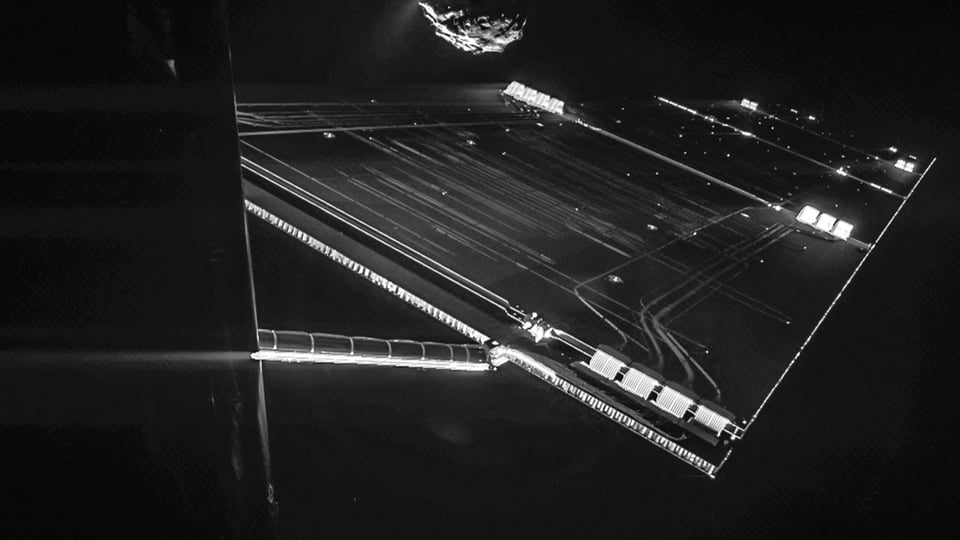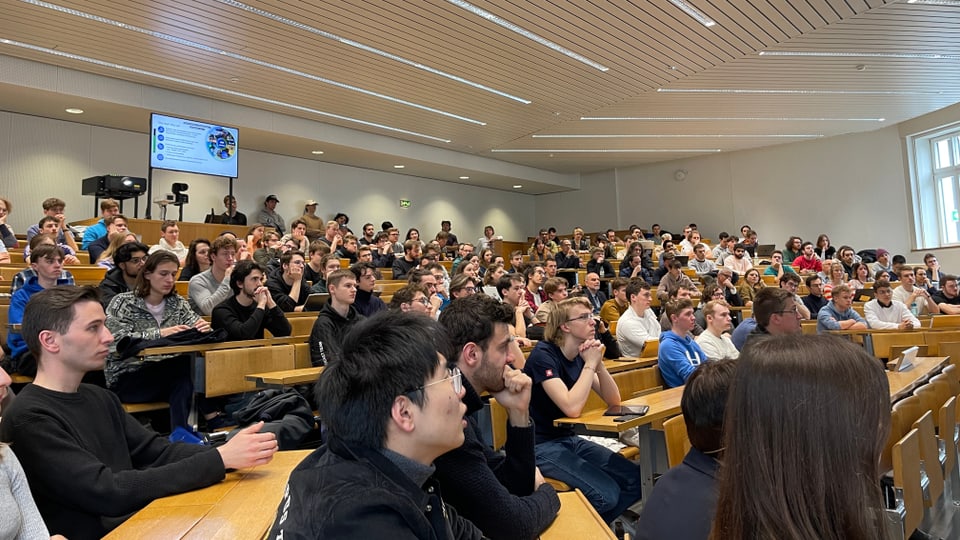Contents
One of the world’s best master’s programs for space is to be created at ETH. NASA luminary Zurbuchen leads it. // AT: ETH Zurich wants to aim very high from autumn onwards
Becoming an astronaut or space technician one day – founding a start-up for space travel or working on space missions: the range of possible fields of activity after the new space studies course at ETH Zurich is wide.
At the information event around six months before the start of the course, around 100 potential students gather in a lecture hall at the university – at the front of the lectern is the Swiss space luminary, the former head of research at the American space agency Nasa Thomas Zurbuchen.
Legend:
Applause from the US President: Joe Biden speaks to NASA scientists on the occasion of the first images from the Webb Space Telescope. Thomas Zurbuchen is the top one on the screen.
Keystone/AP/Evan Vucci
Probably only very few people in this world have as much knowledge and understanding of the universe and its systems as the 56-year-old Bernese Oberland astrophysicist. The fact that he is behind and directs the new specialized master’s program in “Space Systems” at ETH Zurich brings the university additional reputation.
An interdisciplinary course of study
The goal of the new course is sometimes innovation: inventing new systems, thinking differently about space technology. The course combines earth sciences with mathematics and physics, engineering and robotics with chemistry. For Thomas Zurbuchen, training to become an astronaut is not the main focus. “But I’m sure there will be those from time to time,” he says.

Legend:
With its majesty and beauty, space fascinates countless people. Here is an image from the James Webb Telescope of a region of the Carina Nebula.
Keystone/AP/NASA/ESA/CSA/STScI
Zurbuchen has only been at ETH Zurich since last summer – and now he and his team have created this new course of study in record time. This is the first such master’s degree in Switzerland. Time is running out, says the professor and former head of NASA research. Switzerland is lagging behind in this field of research.
But that could be an advantage for the new course of study. The industry has changed so much recently, and the new ETH degree program can be fully geared to this – in contrast to study programs that have already been running for a longer period of time.

Legend:
Space is becoming increasingly important and interesting scientifically and economically. The picture shows a photo of the ESA Rosetta space probe.
Keystone/EPA/Esa/Rosetta/Philae/Civa
The Zurich Master’s program should also be close to the economy, geared towards the needs of companies in the space industry. And there are quite a few of them in this country, emphasizes Thomas Zurbuchen: “There is no rocket in Europe that launches without Swiss technology.”
Great interest from students
But the aim of the master’s degree is not just to serve the space industry, which is growing rapidly worldwide, and to underline Switzerland as a research location. This new, specialized master’s degree was also created at the request of many students.

Legend:
The ETH lecture hall is well filled during the information event.
SRF/Dominik Steiner
For a mechanical engineering student who took part in the information event, this master’s degree promises one of the most exciting degrees currently available. And a young student present also hopes to do a master’s degree in “Space Systems”: “I find it a very exciting field – and would like to specialize in it as an engineer,” she says.
The application deadline for students is approaching: Students who have a bachelor’s degree in physics, engineering or similar can apply from April 1st to 30th. But only a few receive a place to study: Thomas Zurbuchen and his team select a total of around 30 students who can start the first-ever Master’s degree in space systems in Switzerland in the fall – and who may subsequently work on pioneering space missions or innovations.
